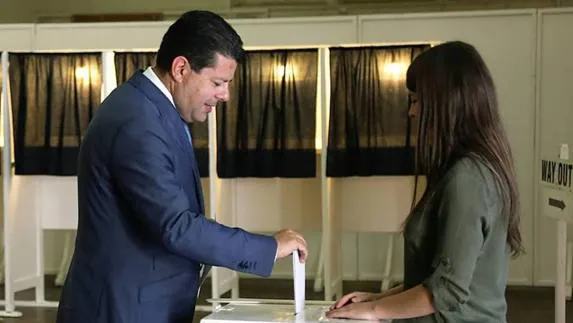

Sections
Highlight

Debbie Bartlett
Friday, 24 May 2019, 10:58
Compartir
Electing the members of the European Parliament is still quite a novel experience for voters in Gibraltar, because although the Rock joined the EU (EEC) with the UK in 1973, its people were not able to vote in EU elections until 2004, and then only after a legal battle.
It was after the European Parliament election of 1994 that a British resident of Gibraltar, Denise Matthews, lodged a complaint with the European Court of Human Rights, saying that as a UK citizen her right to vote had been violated. In 1999, in a landmark judgement, the ECHR decided that as Gibraltar is part of the EU and its people are affected by EU legislation, they should have a say in who introduces that legislation. It also ordered the British government to pay compensation to Ms Matthews for contravening her rights.
Spain tried to block Gibraltars inclusion through a complaint to the European Court of Justice, but was unsuccessful.
As a result, rather than allow Gibraltar to be a constituency in its own right, claiming that it would be over-represented, the UK government decided to include it in the Southwest England constituency, and that has been the case ever since. Voters in this constituency elect six MEPs to represent their interests in Brussels.
Turnout for those first EU elections in Gibraltar was nearly 58 per cent, but has dropped since to levels similar to those in the UK, which are normally between 33 and 35 per cent.
However, this EU election, the fourth in which Gibraltar has been able to vote, is different for many reasons, not least because it is taking place with Brexit in the background. Nobody knows whether the elected MEPs will be able to take their seats or whether the British parliament will approve the withdrawal agreement before they are able to do so.
In the UK, many people who do not normally vote in EU elections were expected to do so this time, either because they wanted to boost pro-Brexit parties or to try to reduce their influence in Brussels.
In Gibraltar, turnout was slightly higher than usual during much of the day, with 5,649 people having voted by 5pm. That was 23.9 per cent of the electorate, compared with 20 per cent at the same time in 2014. In the days beforehand, all political parties urged people to go out and use their right to vote which had been so hard to achieve, without suggesting which party to vote for.
Publicidad
Publicidad
Publicidad
Publicidad
Reporta un error en esta noticia
Necesitas ser suscriptor para poder votar.